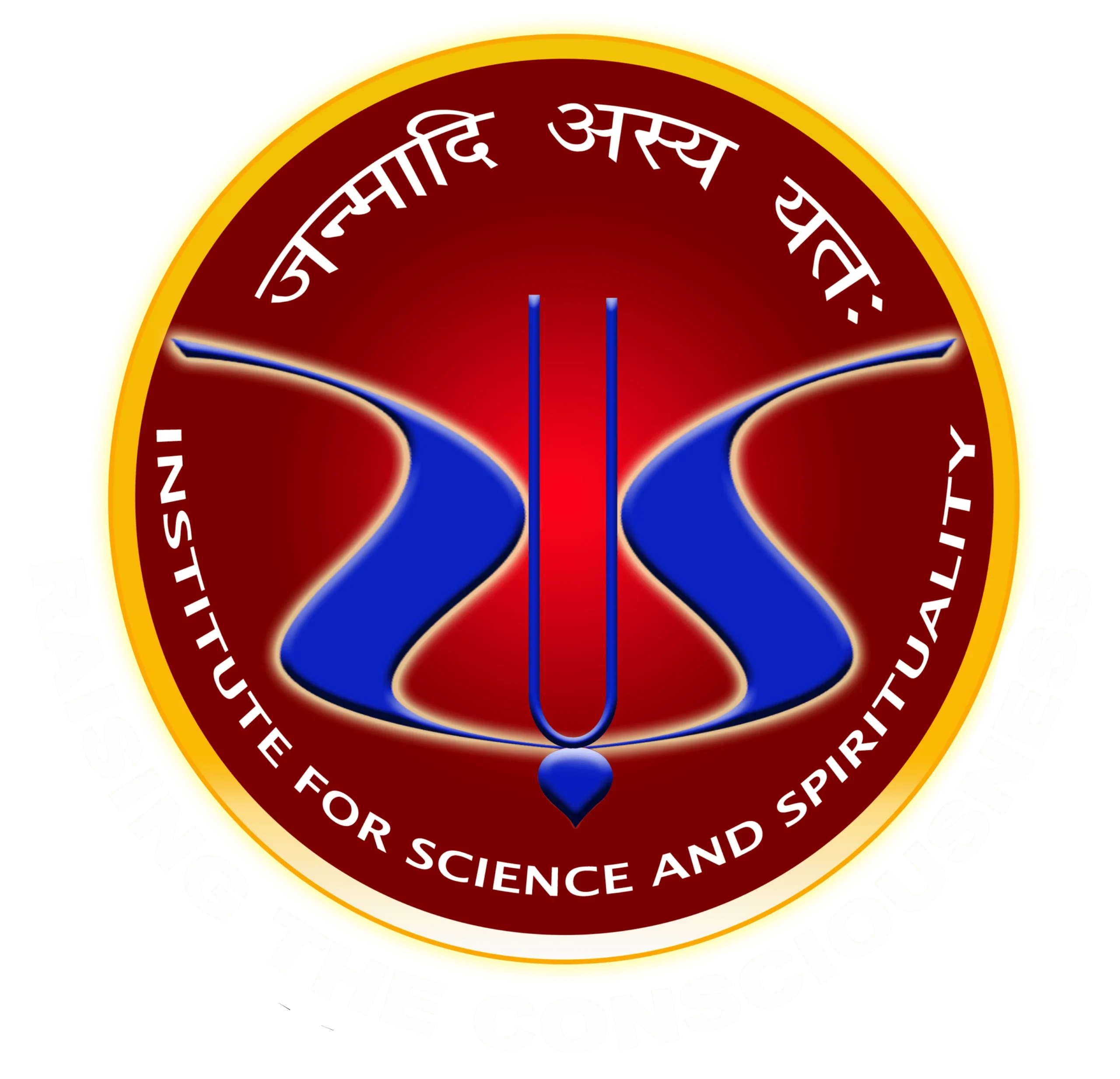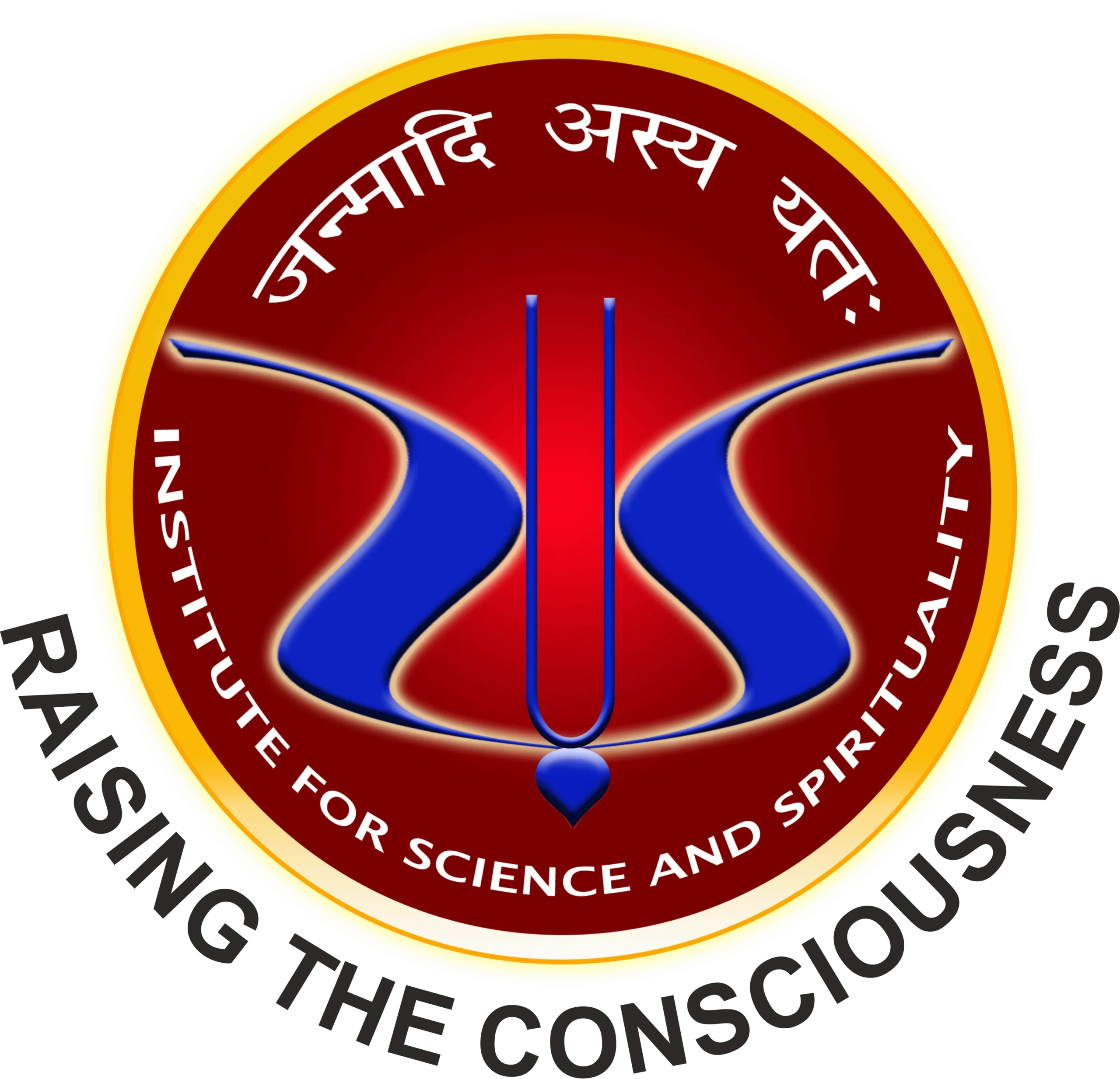Our Activities
Our efforts span over various facets of Indian Knowledge Systems
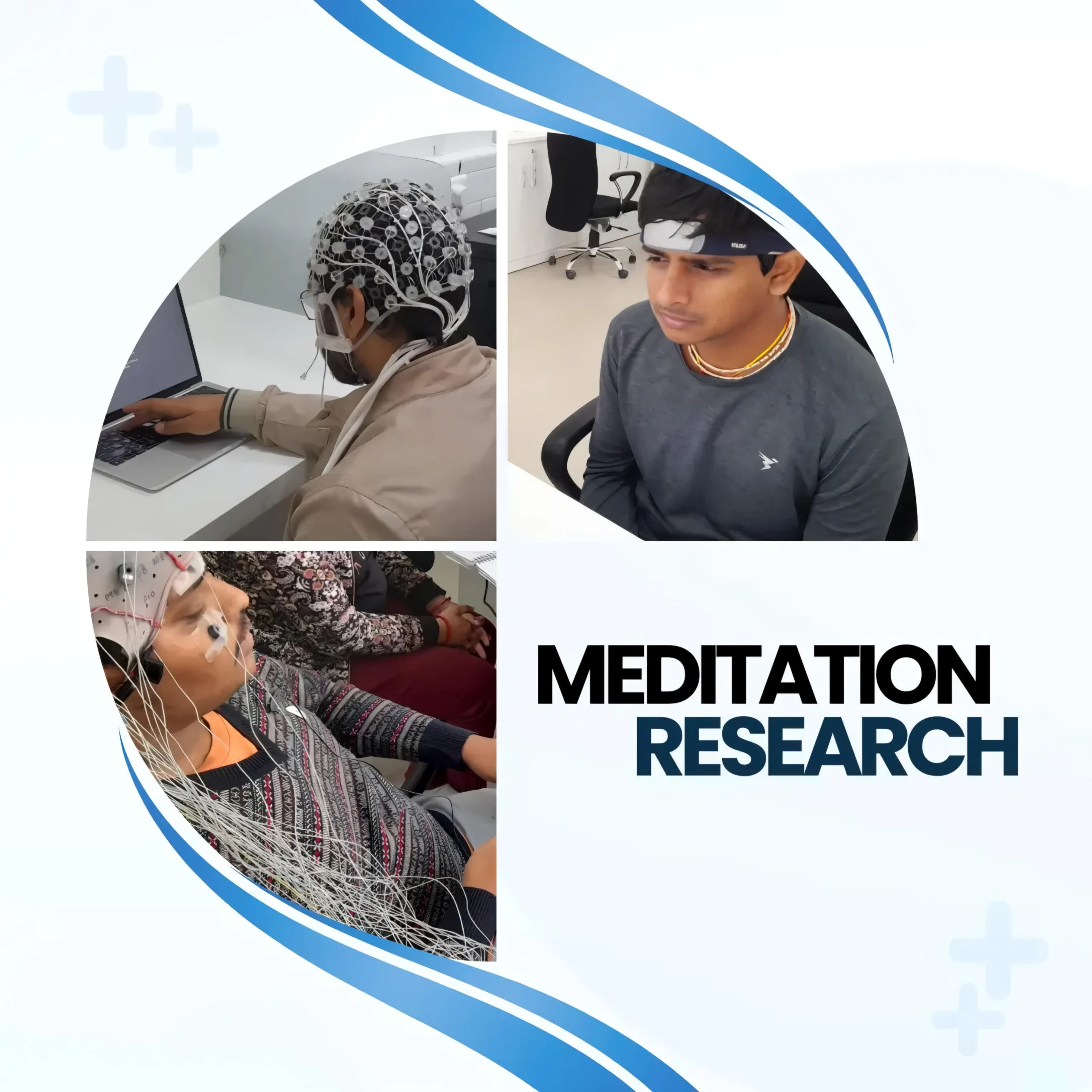
Research
Our research focuses on consciousness studies, vaisnava vedanta and sustainable living. It is a perfect blend of modern scientific rigor and ancient vedic wisdom.
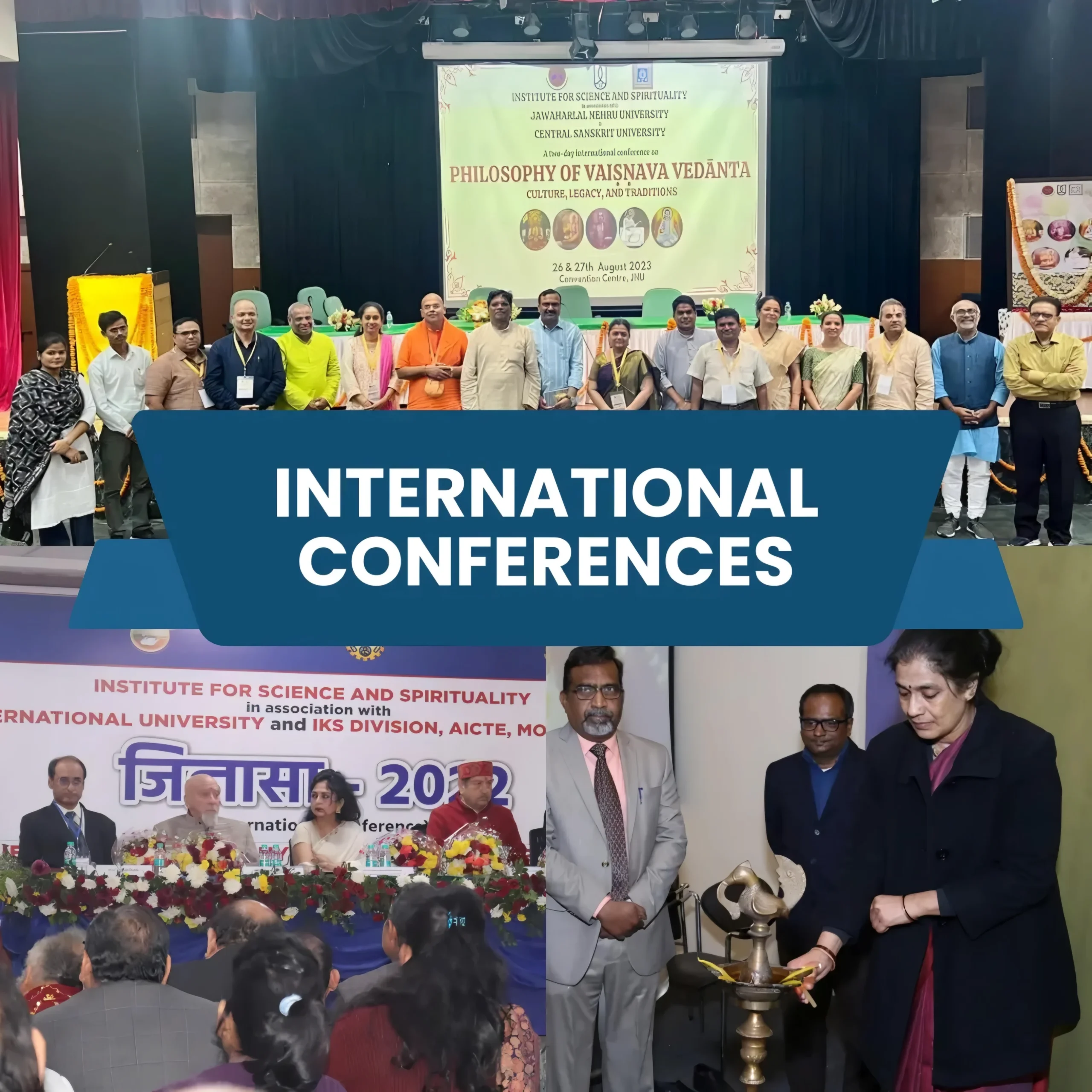
Conferences
We organise international conferences, workshops and public seminars for advancing fundamental science as well as dialogues between science and spirituality.
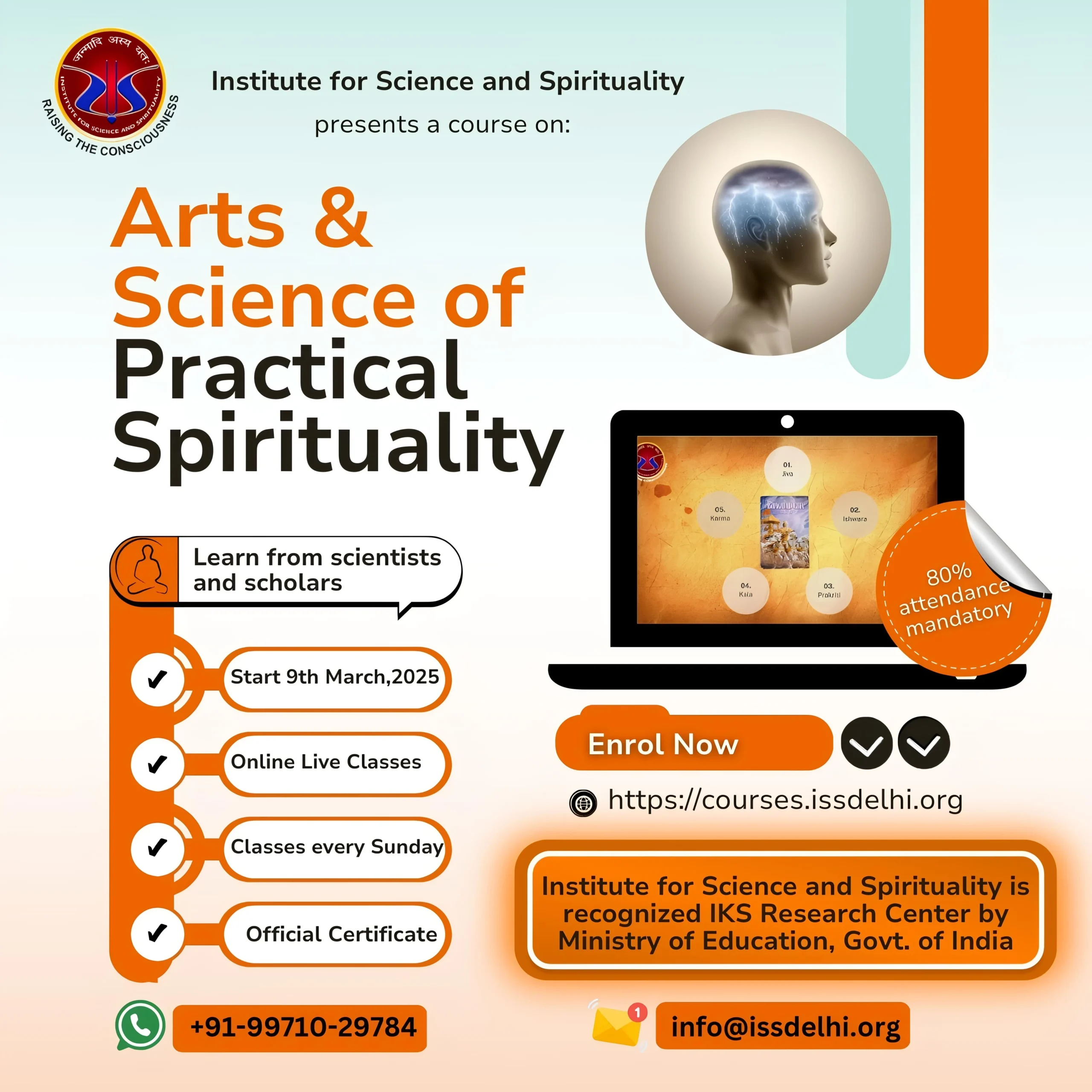
Courses
We offer several courses on Indian Knowledge System with a special emphasis on rigorous scientific and philosophical discussion to infuse crtical thinking.

Publications
We have produced several peer-reviewed publications, books and other materials for scholarly deliberation on many themes.

Workshops
Workshops on Japa, Bhāgavatam and other IKS topics

Podcasts
Podcasts with eminent scientists, philosophers and scholars from various domains.
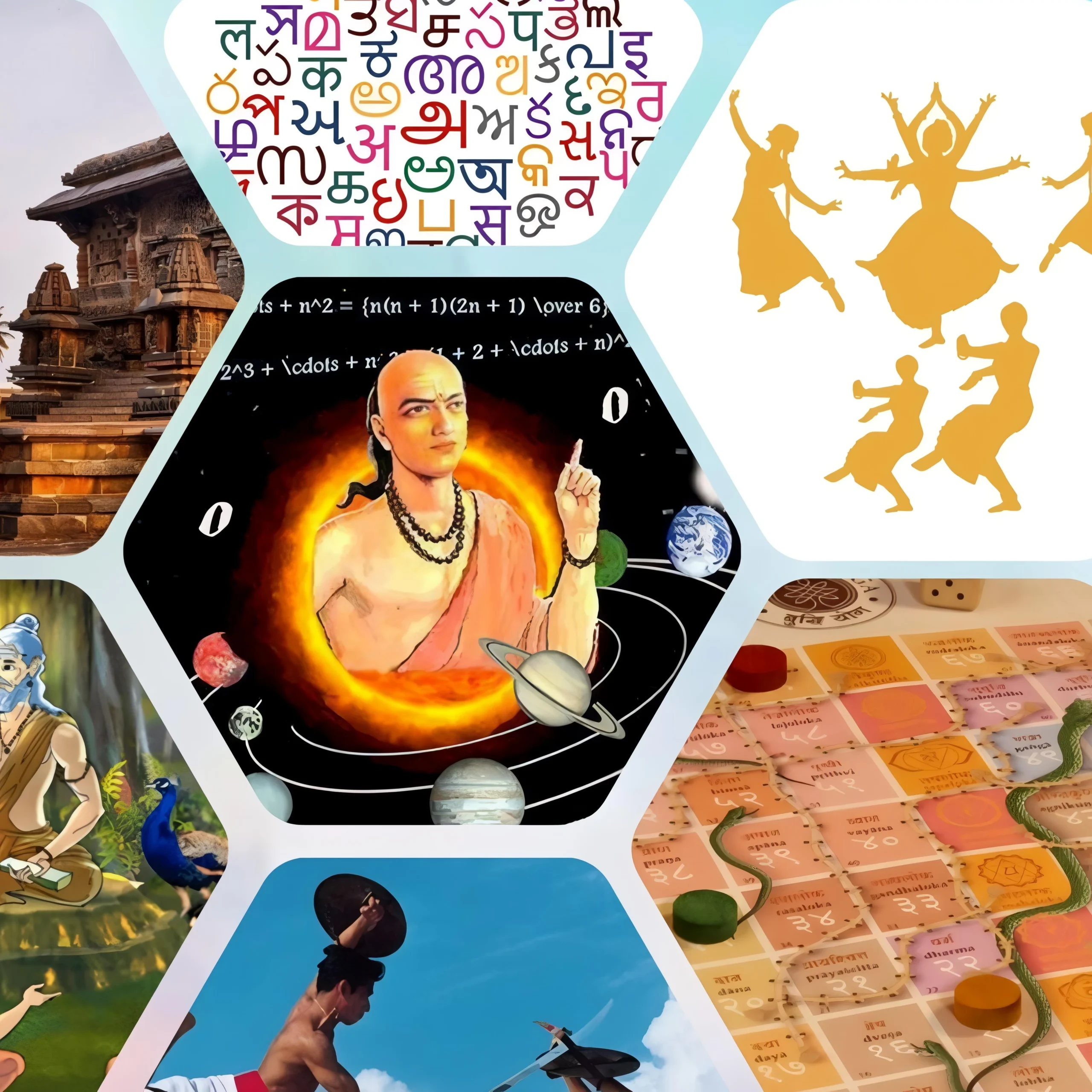
IKS Promotion
Promoting IKS through various media and collaborations with Universities.
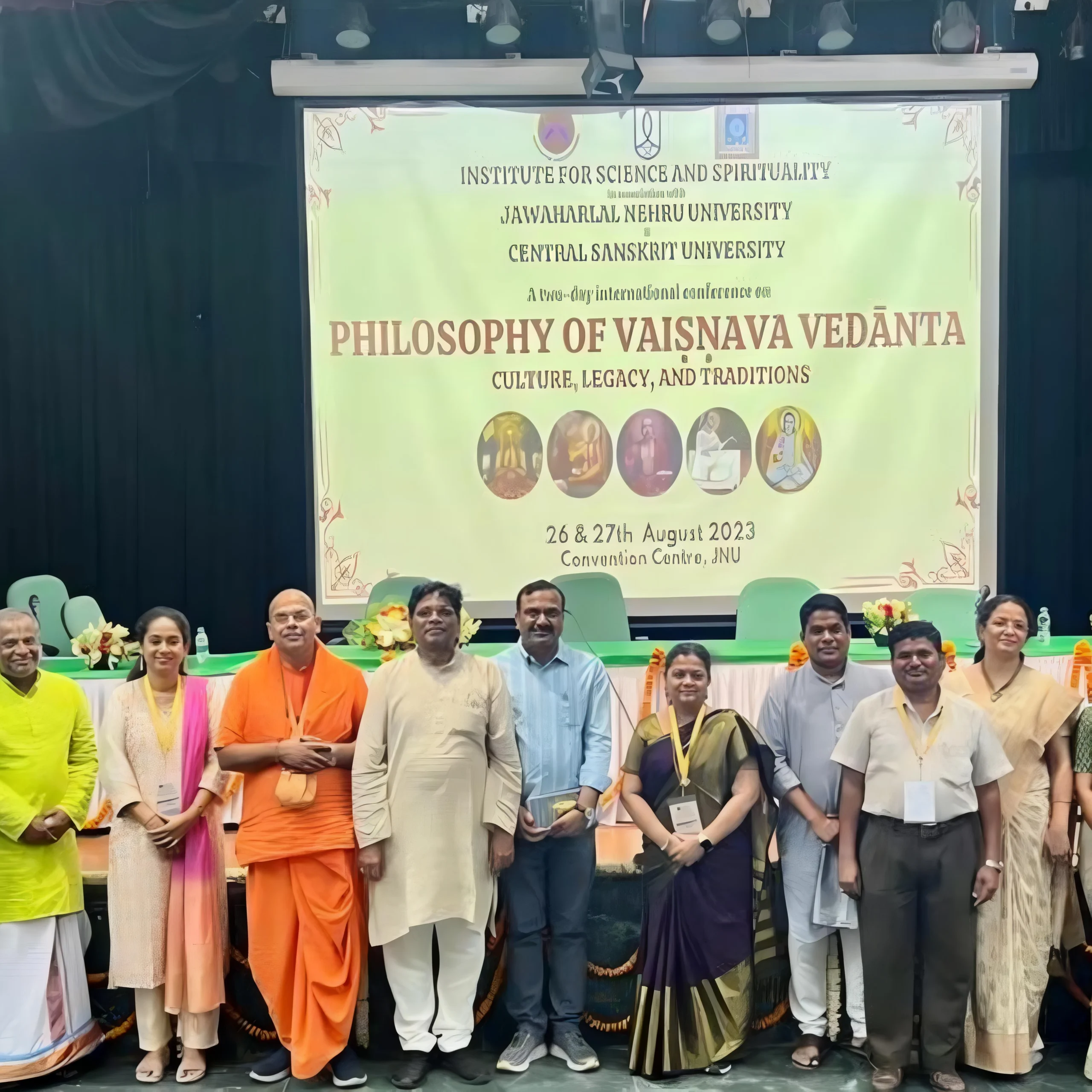
Community
Building a strong community of well-informed scholars on IKS.
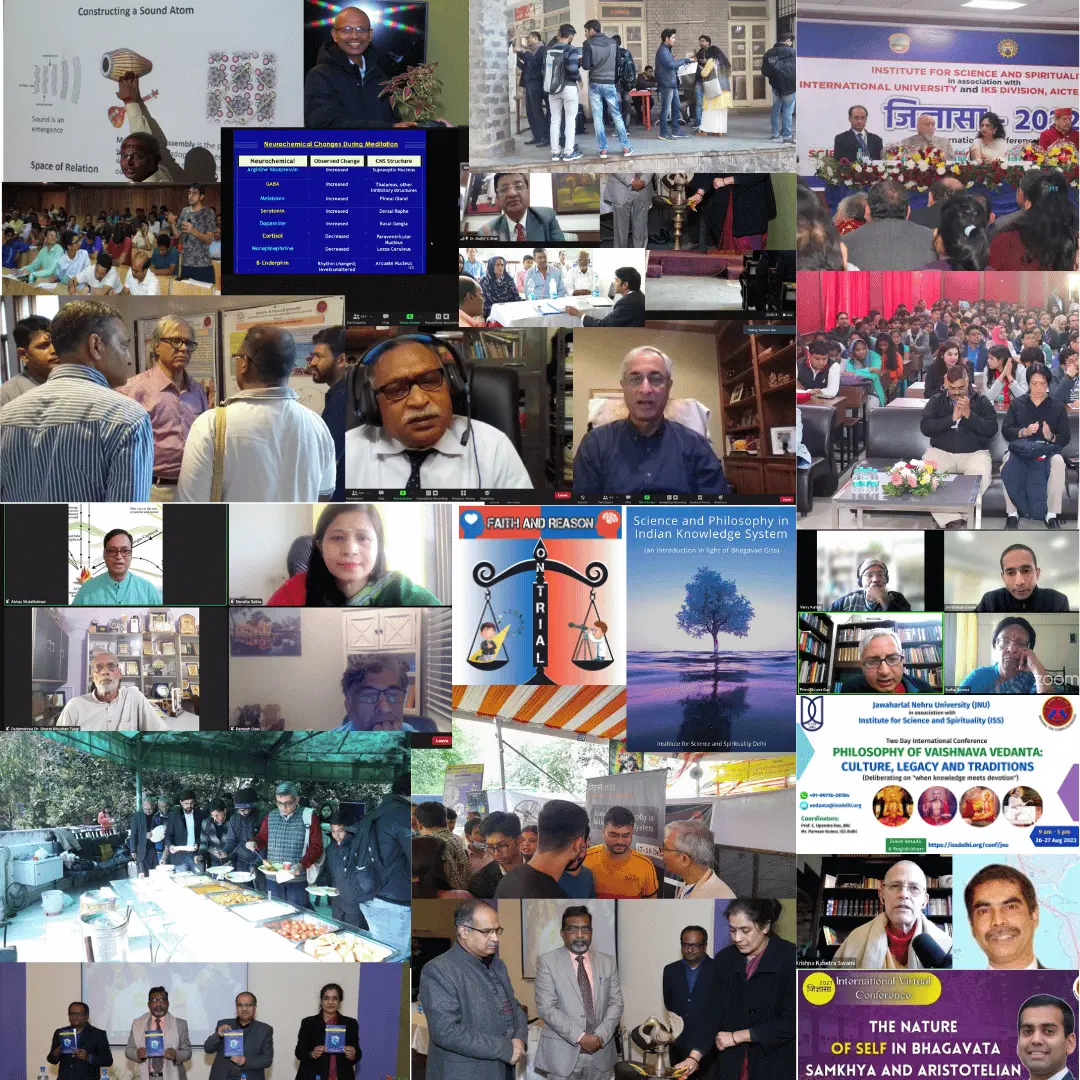
Cutting Edge Research Activities
A great vision ahead
Cutting Edge Research Activities
A great vision ahead

Fundamental research on matter, mind, and consciousness draws inspiration from the Bhāgavat Sāṅkhya. The Bhāgavat Sāṅkhya provides a unique framework, that distinguishes between matter and consciousness through hierarchical nested ontologies. We also study the impact of mental states over brain and imapct of meditation on mind laveraging modern neuroscientific imaging tools, such as, EEG, ECG, etc. Meditation, a contemplative practice, contributes practical insights into the workings of the mind and consciousness.
The goal of such studies alignined with modern scientific inquiries is to explore the depth of ancient revealed wisodm. We also have an active team investigating on Vedāntic philosophy and its implication and relevance in today's era. This interdisciplinary approach, merging ancient philosophy with contemporary research, enhances our understanding of the intricate relationship between these realms. The synergy between these ancient perspectives and scientific exploration fosters a nuanced dialogue, offering transformative insights into the fundamental nature of the universe and the human experience.
SAṂVĀDA : ISS Podcast Series
Crossing the conventional boundaries
In this podcast series, we explore the intersection of science, spirituality, and ancient knowledge systems, delving into their harmonious coexistence. The dialogues navigate historical tensions, emphasizing the evolving perspectives that bridge empirical science and profound spiritual insights. Through engaging examples and expert interviews, it showcases instances where the two realms converge, encouraging a more integrated worldview. Listeners are invited on a contemplative journey, challenging conventional boundaries and fostering a holistic understanding of existence. SAṂVĀDA series inspires a nuanced exploration of the interconnected mysteries that both domains seek to unravel.
History and Philosophy of Science
Science and Spirituality Dialogues
Science and Philosophy in IKS
Vedic Sustainability
Recent Updates
Check out some of our awesome activities embarked by ISS Delhi
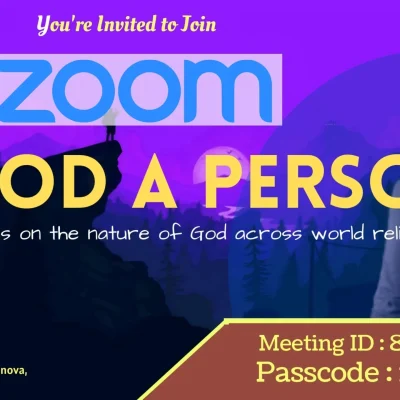
Is God a Person?
Webinar
- 14 April 2024
- Webinar
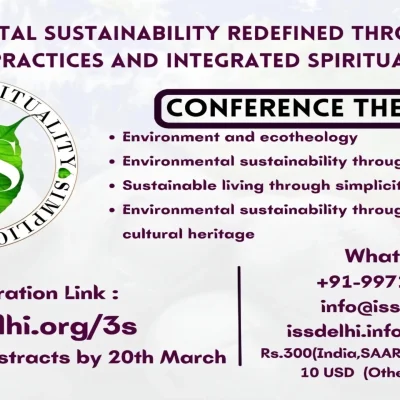
Sustainability Spirituality Simplicity:
International Conference
- 14 April 2024
- Conference
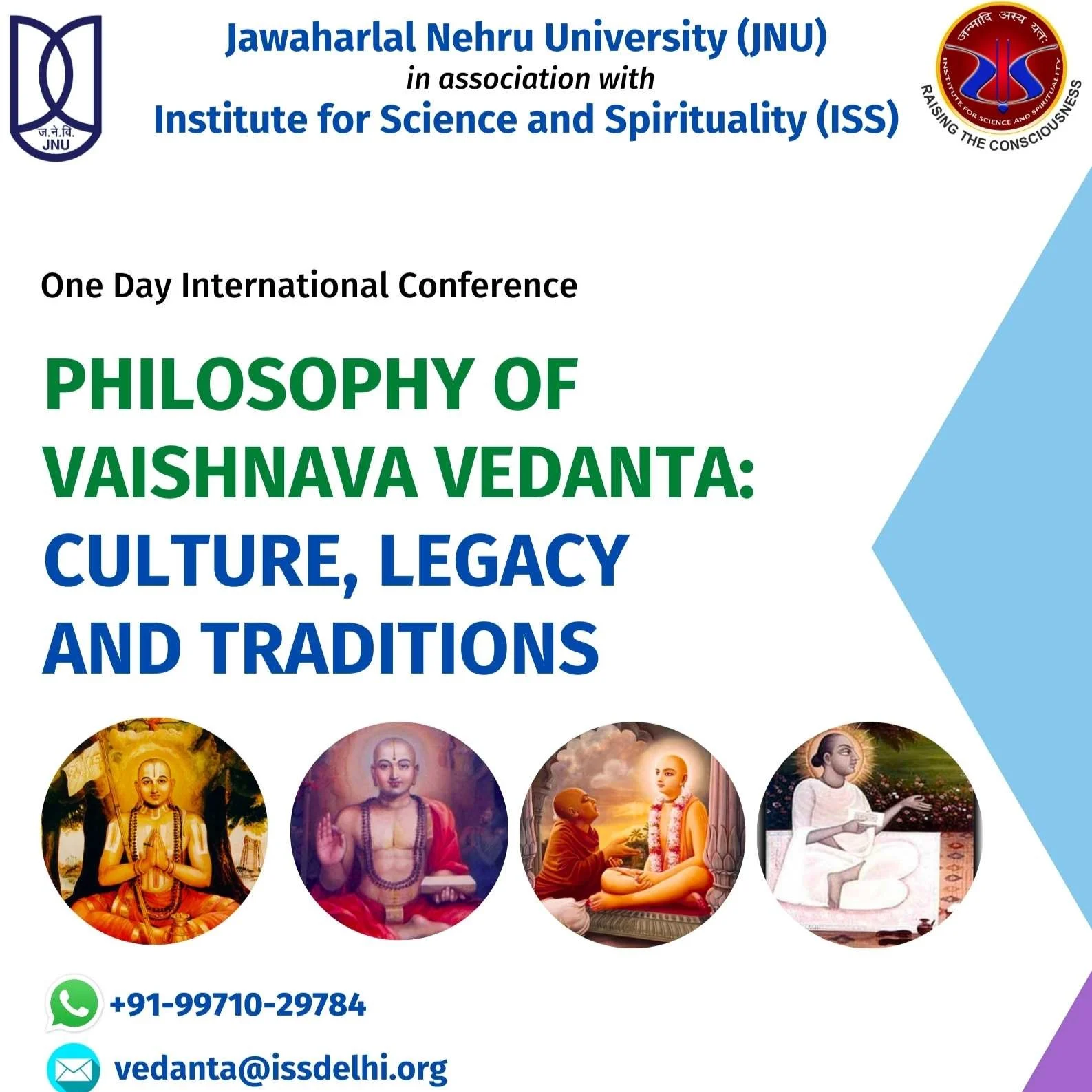
Philosophy of Vaiṣṇava Vedānta
Culture, Legacy and Traditions
- 14 April 2024
- Conference
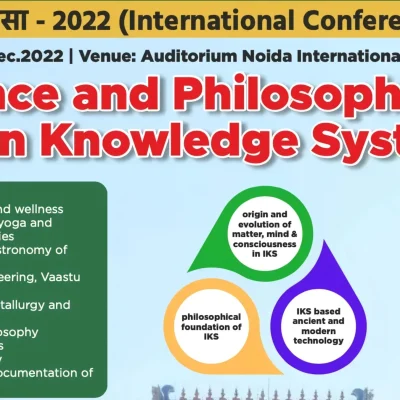
Science and Philosophy in IKS
जिज्ञासा-2022 International Conference
- 14 April 2024
- Conference
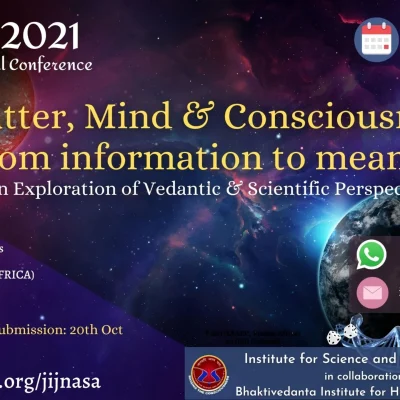
Mind, Matter & Consciousnes
International Virtual Conference
- 14 April 2024
- Conference
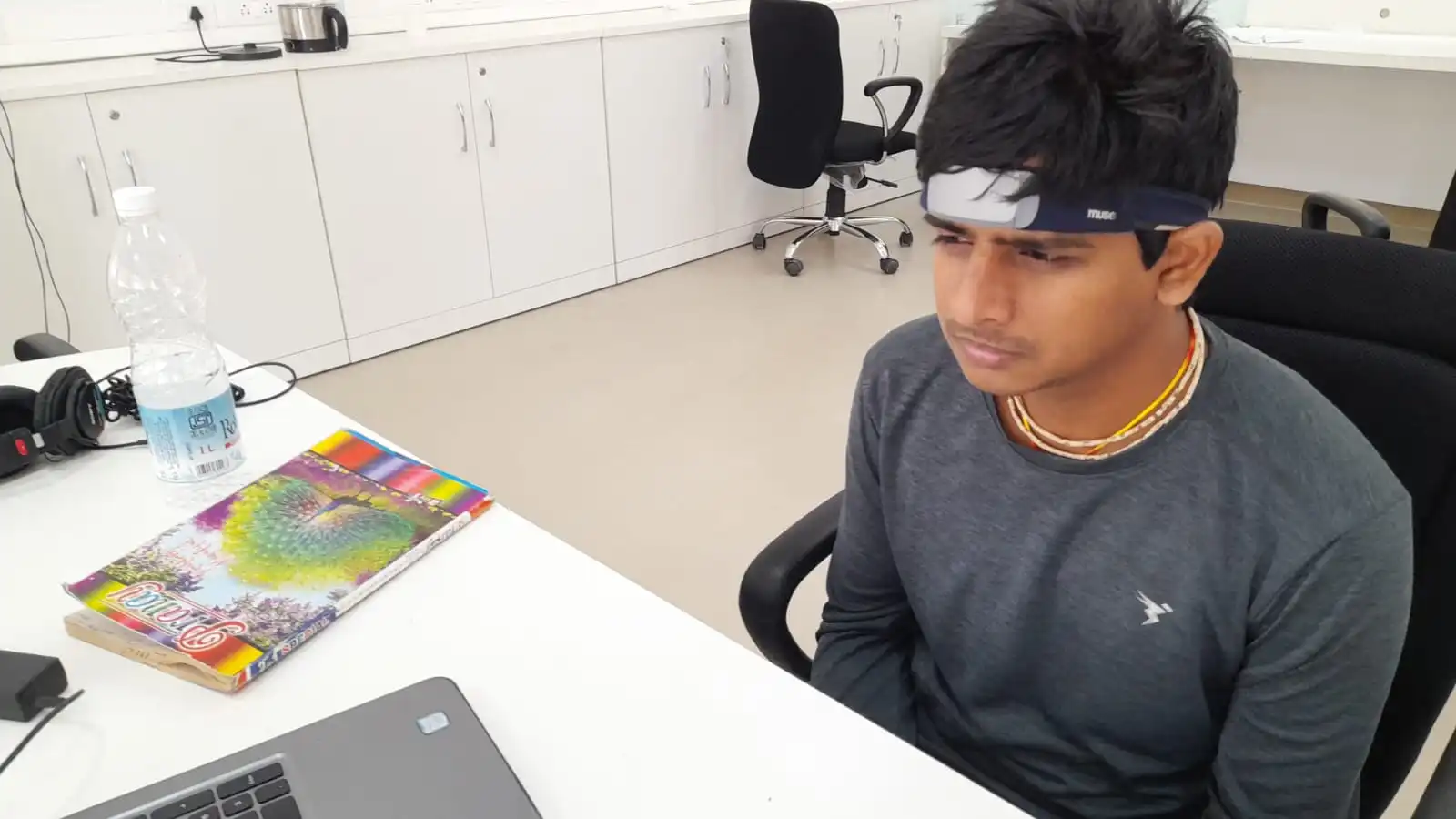
Our mission
Vedic insights to address contemporary challenges
Our mission
Vedic insights to address contemporary challenges

Scientific Temper and Critical Thinking
The development of scientific temper and critical thinking within the field of Indian Knowledge Systems (IKS) is crucial for fostering a rigorous and analytical approach to understanding traditional knowledge. By encouraging scientific temper, IKS aims to instill a mindset that values evidence-based reasoning, empirical observation, and logical inquiry. Critical thinking, as applied in IKS, involves the ability to analyze, question, and evaluate concepts, beliefs, and methodologies within the framework of traditional Indian knowledge. Emphasizing these qualities helps bridge the gap between ancient wisdom and modern understanding, allowing for a more dynamic and informed exploration of the rich heritage of Indian knowledge.
Loyalty to Parampara
In light of the emphasis on scientific temper and critical thinking within Indian Knowledge Systems (IKS), loyalty to parampara (tradition) takes on a nuanced role. It involves respecting and preserving the wisdom passed down through generations while also encouraging a dynamic engagement with that tradition. Loyalty to parampara, in this context, signifies an appreciation for the historical context and foundational principles of traditional knowledge. It does not imply unquestioning adherence but rather a commitment to understanding, interpreting, and evolving the traditional wisdom through the lens of scientific inquiry and critical thinking. This balanced approach allows for the preservation of cultural heritage while fostering an environment that welcomes thoughtful exploration and adaptation in the face of contemporary challenges.
Service to the Society
In the context of Indian Knowledge Systems (IKS), "Serving the Society" takes on a distinctive dimension rooted in traditional wisdom and values. IKS emphasizes the interconnectedness of knowledge, ethics, and social responsibility. Serving the society within the framework of IKS involves applying traditional knowledge to address contemporary challenges, promote sustainable practices, and contribute to the holistic well-being of individuals and communities. This service may encompass initiatives that draw upon indigenous knowledge systems to provide solutions in areas such as healthcare, agriculture, environmental conservation, and social harmony. In alignment with IKS principles, serving the society is not only an act of altruism but also a reflection of the symbiotic relationship between cultural heritage, knowledge, and the collective welfare of society.
Our Objectives
Harmonizing tradition with fundamental science & innovation for societal well-being
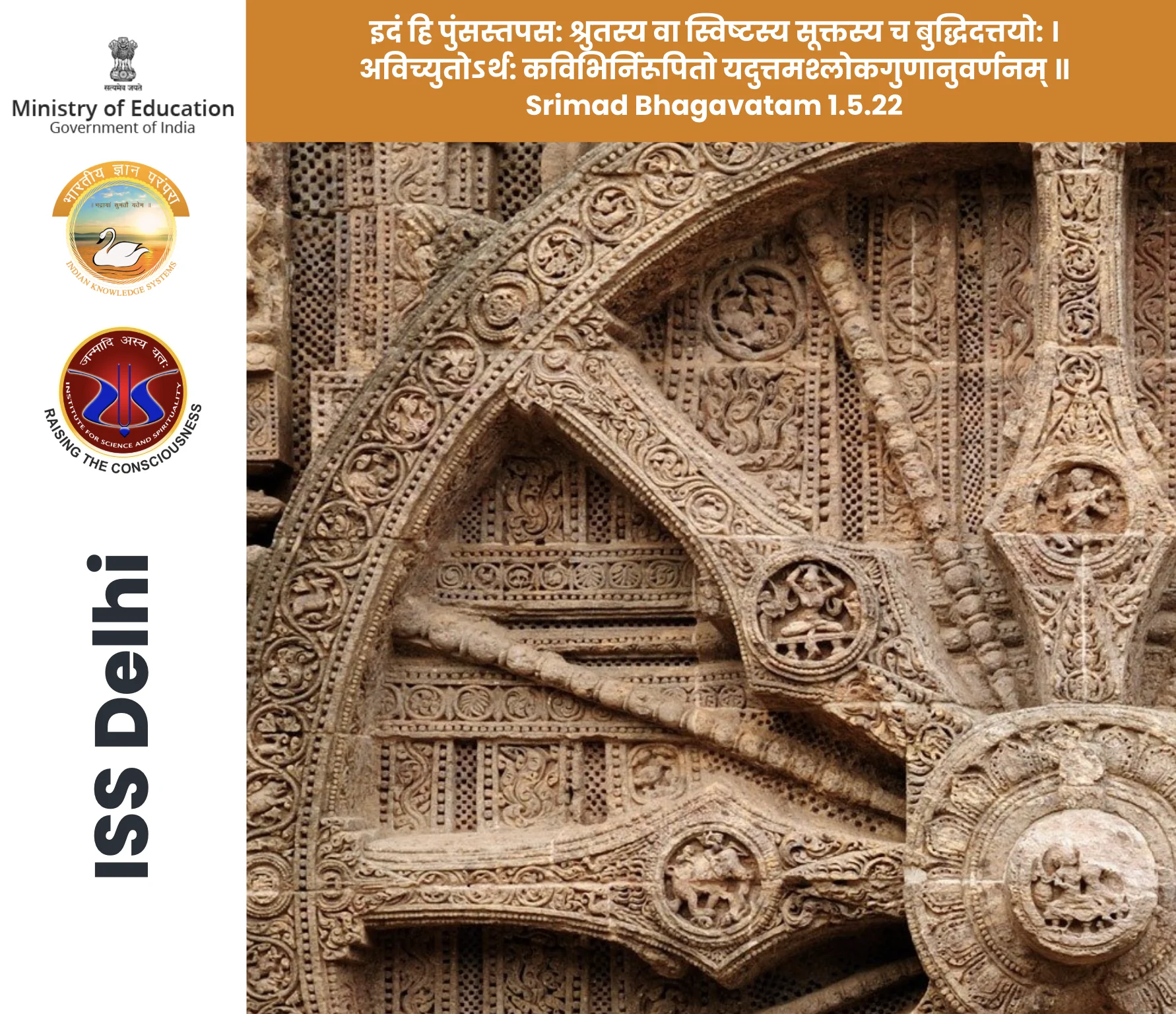
- To promote dialogue between science and spirituality so as to draw serious attention of scholars for an alternate consciousness based paradigm as advocated in Indian Knowledge System.
- To conduct regular workshops, seminars, conferences and symposiums on Gaudiya Vaisnava Vedanta, Bhagavata Samkhya, and allied topics for the holistic development of the society at large.
- To build inclusive, symbiotic and sustainable societies by imbibing holistic Indian knowledge system and promoting multidisciplinary education and research.
- To pursue in-house research in Vedic literature with emphasis on the underlying scientific, technological, philosophical, theological and cultural aspects.
- To preserve & perpetuate India's glorious heritage including is culture, values, indigenous occupation & knowledge system through genuine & unbiased scientific, technological & intellectual presentation.
- To investigate the fundamental question on the origin of life and the Universe.

Our Objectives
Harmonizing tradition with fundamental science and innovation for societal well-being
- To promote dialogue between science and spirituality so as to draw serious attention of scholars for an alternate consciousness based paradigm as advocated in Indian Knowledge System.
- To conduct regular workshops, seminars, conferences and symposiums on Gaudiya Vaisnava Vedanta, Bhagavata Samkhya, and allied topics for the holistic development of the society at large.
- To build inclusive, symbiotic and sustainable societies by imbibing holistic Indian knowledge system and promoting multidisciplinary education and research.
- To pursue in-house research in Vedic literature with emphasis on the underlying scientific, technological, philosophical, theological and cultural aspects.
- To preserve & perpetuate India's glorious heritage including is culture, values, indigenous occupation & knowledge system through genuine & unbiased scientific, technological & intellectual presentation.
- To investigate the fundamental question on the origin of life and the Universe.
